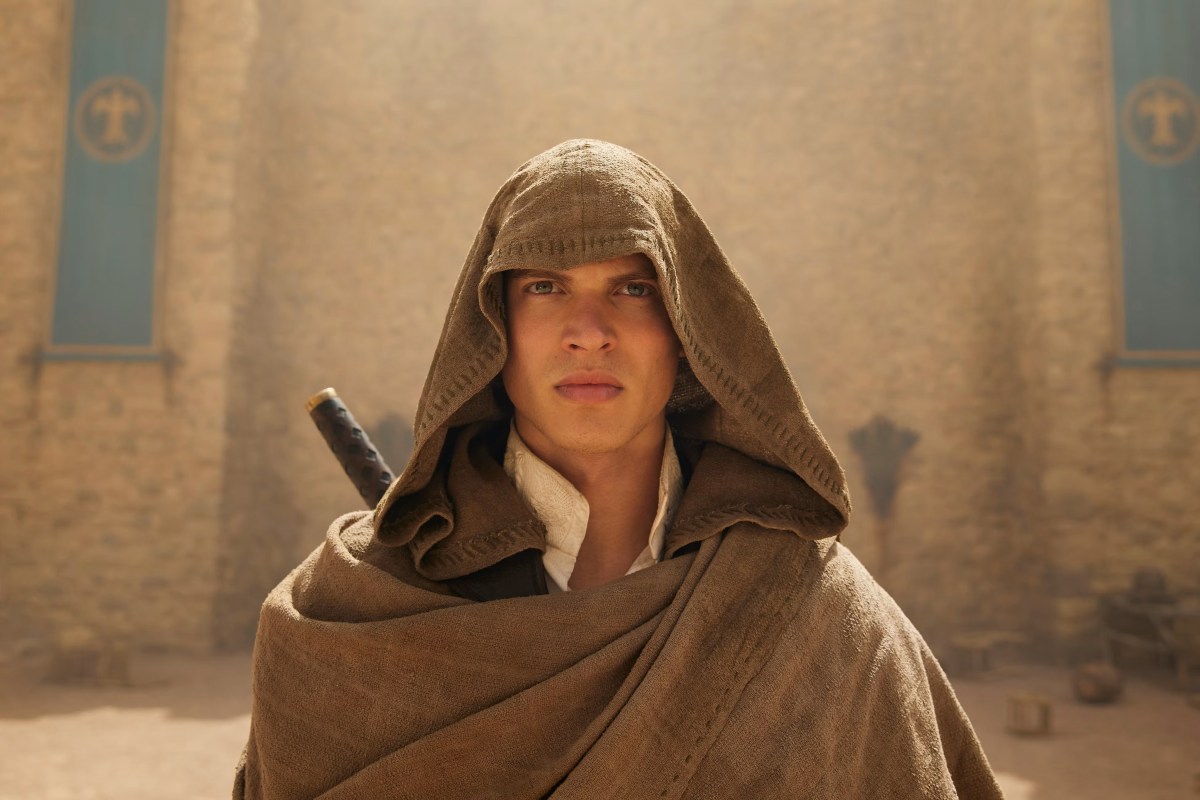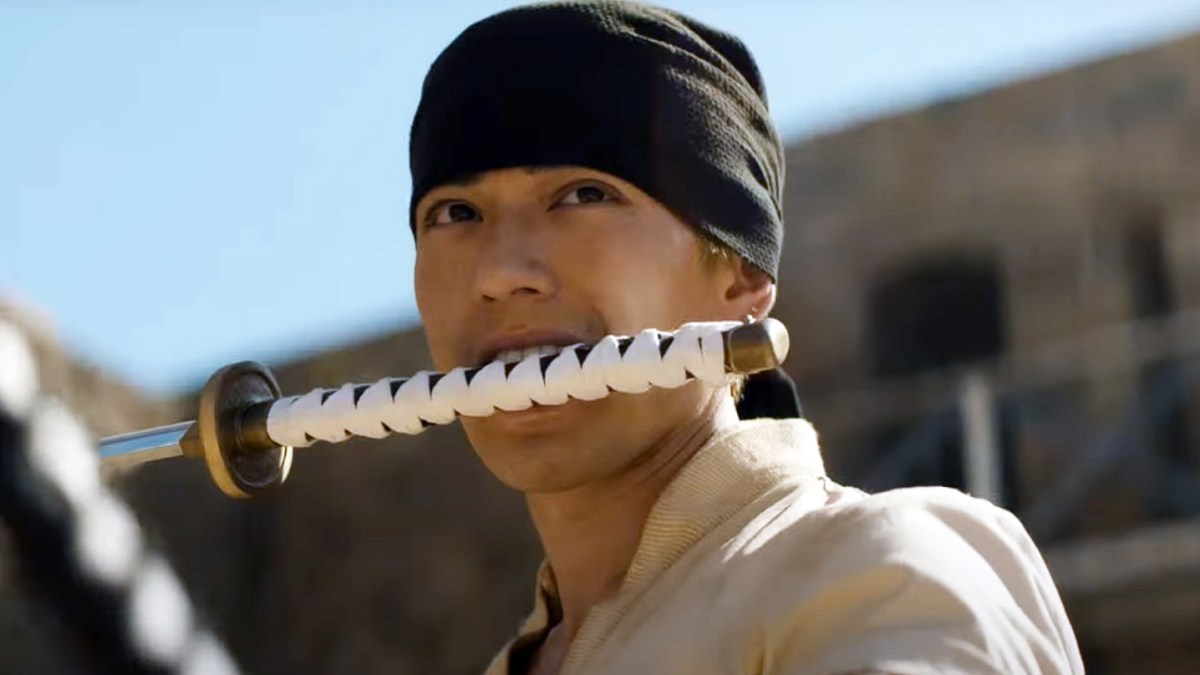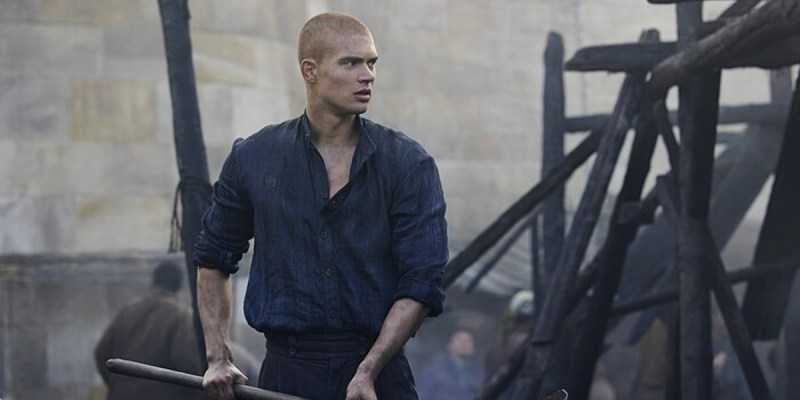Warning: The following article on why adaptations work or fail contains spoilers for The Wheel of Time and One Piece.
Adaptations from literature have long been a go-to for success in television and cinema. All you have to look at is Peter Jackson’s iteration of J.R.R. Tolkien’s legendary epic fantasy The Lord of the Rings trilogy, the Harry Potter franchise from the works of J.K. Rowling and The Hunger Games by Suzanne Collins. These are adaptations from the last two decades that have achieved remarkable success by finding that perfect balance. They weren’t weighted to the dense worlds they were adapted from, but they still found a way to capture the spirit of their respective source material.
As we have entered the last decade, the push for adapting has grown. Since Harry Potter grew up and the hobbits retired to the Shire, studios have been desperately clambering to find a new magic money-making machine. Many challengers have come and gone to try and hold the crown and as they’ve grown in number, I’ve had one question on my mind: What makes an adaptation work?
Related: Amazon’s Wheel of Time Has a Serious Dragon Reborn Problem

I ask this because of my growing frustration with series’ like The Witcher and The Wheel of Time. I come at these two adaptations from different angles. With The Witcher, I enjoy the game from CD PROJEKT RED. I enjoyed the many twists on the fairytales we grew up with as children and Geralt and the world he inhabited was fascinating.
So, when the series was announced I was cautiously optimistic. And lo and behold when it aired, the first season was a strangely charming experience. Sure it was all over the place timeline-wise, which was an issue for some, but it kept the core of the books and games. Unfortunately, as the series has continued there have been several changes made to the story which have not gone down well.
With The Wheel of Time, the issues are numerous and I’ve discussed it at length in another article. Suffice it to say, that many choices have been made to “Randland” and all is not well for many fans of Robert Jordan’s celebrated works. Whether it be characters omitted or unnecessary changes made to lore, The Wheel of Time is barely hanging on by a thread.
On the other side of the spectrum though is a pirate, a hero with a daring heart and very little brains. I am of course talking about Monkey D. Luffy getting a fresh coat of paint with the Netflix adaptation of One Piece. For those not in the know, One Piece is a manga that has been running for close to three decades and has over 1,000 chapters. It also has over 1,000 named characters.
Related: Netflix’s One Piece Has Introduced the World to the Anime Zaddy

You would think this impossible to adapt and yet showrunners Matt Owens and Steven Maeda have potentially cracked the code. They adapted 90 chapters into one eight-episode season and they achieved it spectacularly in my opinion. Were there moments missed? Yes, I believe we can all agree we’d have liked to see Chouchou defending his deceased owner’s pet shop. It was not to be, unfortunately.
It made drastic changes with regard to the pace of the series. Some storylines in the manga were stripped down and streamlined. And every now and then something was lost. Thankfully at the core of it all were these characters we have loved for decades. Not only that, One Piece seems to have transferred its visual flair to its adaptation. This is something I feel other adaptations are lacking. Most series, Shadow & Bone, The Witcher and The Wheel of Time have an eerily similar aesthetic.
As I come to the conclusion of my article I look back and believe I know some of the telltale signs of a successful adaptation or at least red flags to watch out for regarding failures. There has to be some kind of working relationship with the creator, or at least with their family or friends. If that is even slightly disingenuous it can be a hole that you’ll never climb out of. Simply look to The Wheel of Time and its relationship with Harriet McDougal and Brandon Sanderson.
Harriet is the steward of her husband’s work and Brandon is a kind of successor. Since production began both have spoken briefly about the series. It has actually devolved to the point where Sanderson didn’t realise he was still a consultant for Season 2 of The Wheel of Time. Check out his review of the Season 2 finale, I’m sure you’ll be as interested as I am.
With The Witcher, as soon as the story deviated from the source material, the Witcher himself Henry Cavill seemed to take issue. Then in 2022, he announced he was leaving the production. Many believe this was due to the continuing separation from the original narrative.
Related: How To Read The Witcher Books in Order

Then comes One Piece, Eiichiro Oda himself seems to have an incredible working relationship with not just the showrunners, but the cast themselves. Giving them directions, thoughts and more to help the series succeed. Continuing this trend of success is another key element of success, don’t let the characters do something out of character. Within One Piece these characters stay true to who they are. They never waver or make out-of-character choices. This showcases the unique and charming elements for newcomers. Also, it reminds older fans of why they fell in love with these characters.
Looking at The Witcher and The Wheel of Time, there are many out of character choices made. The biggest one for The Witcher was Yennefer’s decision to sacrifice Ciri. It was a decision that a lot of fans have taken umbrage with. The team went so far as to step it back that they had a whole episode apologising to Geralt (and the fans).
Then there is The Wheel of Time and the list of questionable character decisions is too long to list. From Perrin to Moiraine, almost every character in The Wheel of Time has done something out of character. This is one of the bigger issues I had with the series and that a lot of fans have.
This all culminates in what makes or breaks a successful adaptation. Which is whether or not the adaptation has the spirit of its source material. Here is where One Piece excels and The Wheel of Time fails. Many people I have spoken to have said the reason why they love One Piece is because it feels like the actual anime/manga. On the flip side, people have told me they enjoy the series when they divorce themselves from the books. That not having expectations helps them enjoy this version of the story.
And maybe that’s how adaptations work. Maybe you just need to emotionally distance yourself when an adaptation of your favourite story is told. For me, I don’t think that’s how an adaptation succeeds. In my opinion, I think adaptations succeed when they understand what made the original work so well and learn to expand on their core themes genuinely.
